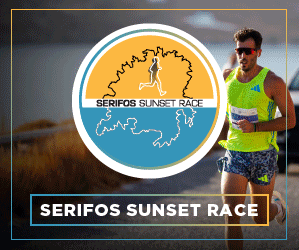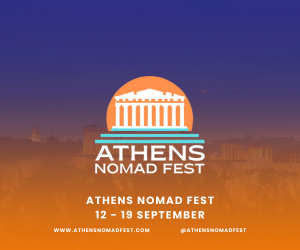Folegandros: Images of an Undiscovered Gem
- by XpatAthens
- Wednesday, 18 February 2015

Walk along the cobblestone narrow streets of Hóra past white houses with multi-coloured doors and windows, timeless creations of the traditional Cycladic architecture. If you need to take a rest, plane trees will offer you their cool, welcome shade. Wait until the sun sets into the eternal blue of the Aegean and join the locals in the village’s squares. Share with them homemade dishes and local delicacies, such as “matsáta” (handmade noodles with rooster or rabbit), sourotó (white goat cheese), and drink “rakómelo” (raki with honey) the famous spirit of the island. Here you will find most of the island's fine hotels.
• Tour natural and religious sites.
The Church of the Assumption of the Virgin Mary
Towering above Hóra and with a stone path leading to it, a whitewashed impressive church awaits to be discovered. Allegedly built on the site of an ancient temple, the church hosts significant ancient immured inscriptions and statues’ pedestals in its yard and interior. Tradition has it that the silver-plated icon of the Virgin Mary is miraculous. Linked to pirate stories, the icon is carried around the town in a procession held every year on Easter Sunday.
Hiking tip: Follow the rocky path starting from Poúnda square all the way to the church (walking time app. 15 min).
Ano Merá
The picturesque village of Ano Merá is a traditional rural settlement of the 19th century. To learn more about the traditional everyday life of Folégandros, visit the Folk Art Museum (open from 17:00 to 20:00 in the summer).
Chrysospiliá
Chrysospiliá is a natural monument of great interest, and not just to archaeologists and speleologists. Situated below the monastery of the Virgin Mary on a rocky beach at 30m above sea level with impressive stalactites and stalagmites, the cave is globally unique for the ancient male Greek names written on its walls and roof, dated back to the 4th century BC. Nicagoras, Themistocles, Cleon, Callimachus, Pythagoras, and Lysicrates are some of the names carved on the cave walls. According to some theories, the cave was used as a worship site where ceremonies for young men coming of age used to take place.
Important info: Accessible only by the sea, the cave is temporarily unavailable for visitors due to archaeological research in progress.
• Head to the island's pristine beaches.
This small island in the Cyclades is full of pebbly beaches covered with tamarisk trees. The scenic harbour of Karavostássis with its beautiful beach is the perfect starting point for an exploration of the glorious beaches of Hohlídia, Vitzétzo, Latináki, Pountáki and Livádi, a village with a sandy beach, turquoise waters and a camping site. Those of you, who don't feel like walking, can take a caique from Karavostássis to Kátergo, the most beautiful beach on the island, with thin pebbles and crystal-clear waters. Sheer cliff drops and azure waters embrace Agali beach to the west of the island. A trail from here will take you to the clothing-optional beach of Ayios Nikólaos, where a small taverna with delicious food and a marvelous view awaits you. In the northeastern part of the island lie the beaches of Voriná, with green stones peculiar-to-Folégandros, Ayios Geórgios and Serfiótiko, accessible only by caique or on foot.
• Taste culinary delights and local wine:
Matsáta: handmade noodles with rooster or rabbit
Sourotó: white goat cheese
Kalassoúna: cheese pie made with sourotó and onions
Cooked caper
Baked chickpeas
Karpouzénia: a local sweet made of fried watermelon (in Greek watermelon means “karpouzi”)
Sesame bars
White and red wine
Source: Visitgreece.gr




